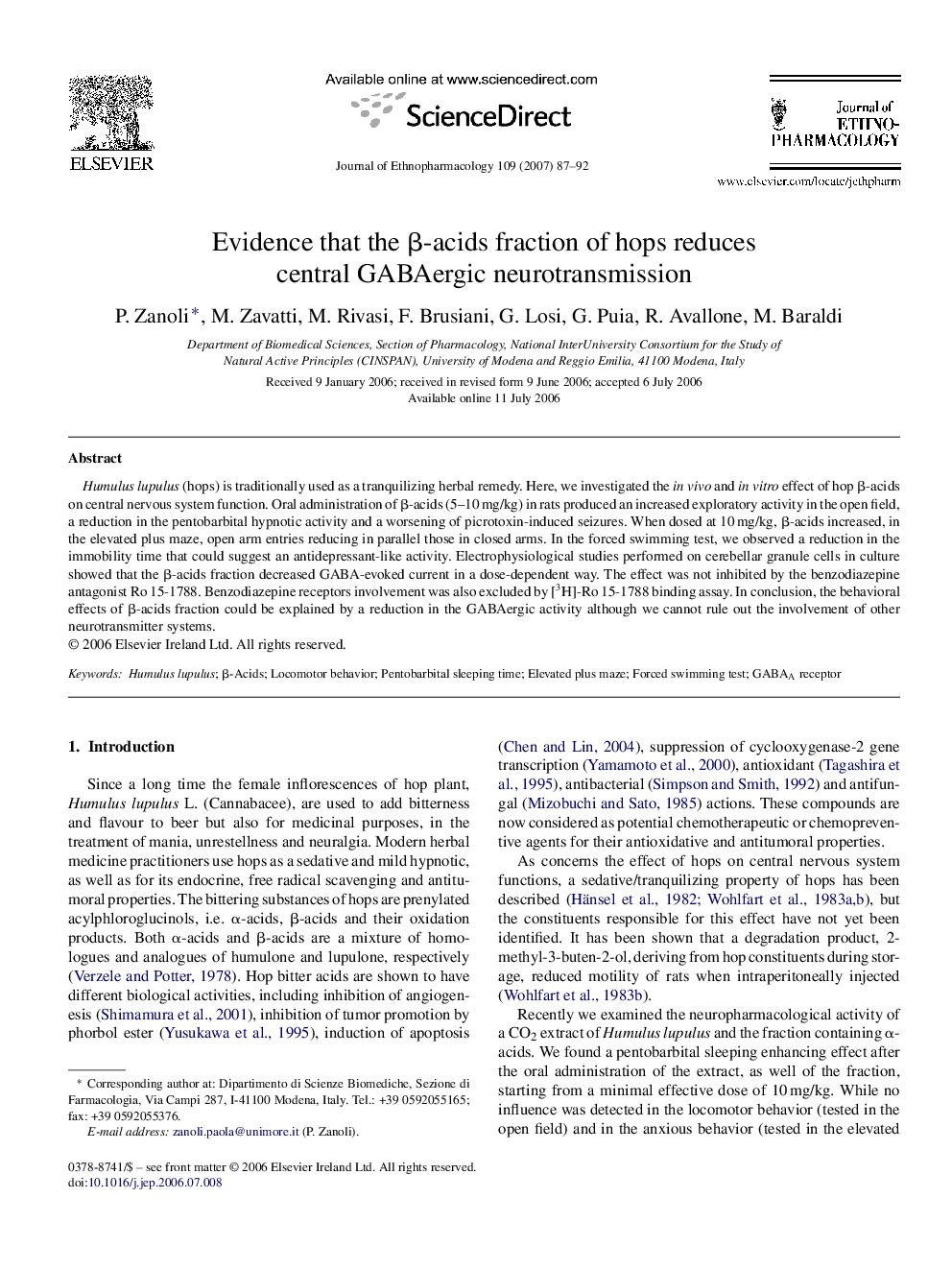| Article ID | Journal | Published Year | Pages | File Type |
|---|---|---|---|---|
| 2548482 | Journal of Ethnopharmacology | 2007 | 6 Pages |
Humulus lupulus (hops) is traditionally used as a tranquilizing herbal remedy. Here, we investigated the in vivo and in vitro effect of hop β-acids on central nervous system function. Oral administration of β-acids (5–10 mg/kg) in rats produced an increased exploratory activity in the open field, a reduction in the pentobarbital hypnotic activity and a worsening of picrotoxin-induced seizures. When dosed at 10 mg/kg, β-acids increased, in the elevated plus maze, open arm entries reducing in parallel those in closed arms. In the forced swimming test, we observed a reduction in the immobility time that could suggest an antidepressant-like activity. Electrophysiological studies performed on cerebellar granule cells in culture showed that the β-acids fraction decreased GABA-evoked current in a dose-dependent way. The effect was not inhibited by the benzodiazepine antagonist Ro 15-1788. Benzodiazepine receptors involvement was also excluded by [3H]-Ro 15-1788 binding assay. In conclusion, the behavioral effects of β-acids fraction could be explained by a reduction in the GABAergic activity although we cannot rule out the involvement of other neurotransmitter systems.
